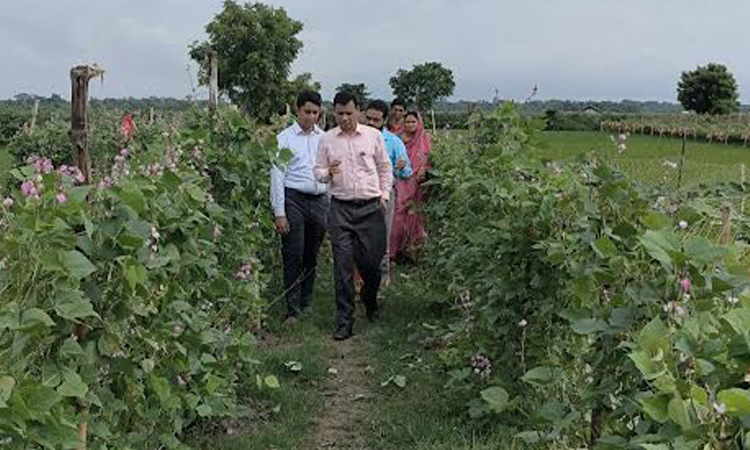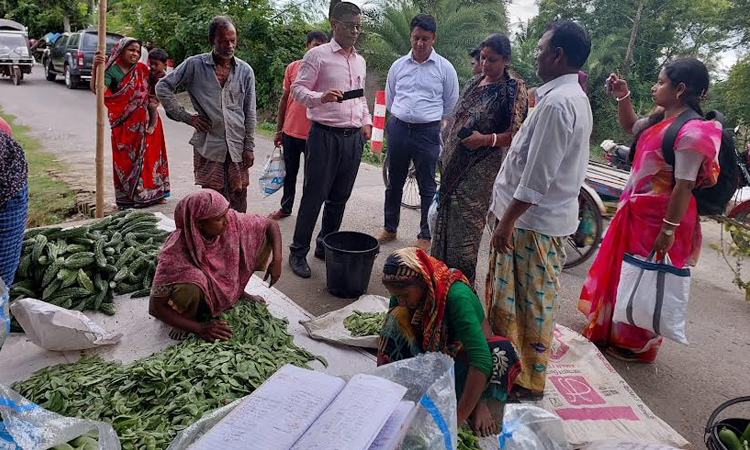News Flash
News Flash

By S M Zahid Hossain
KHULNA, Oct 1, 2025 (BSS) - Aklima Begum, 40, of Angardah village under Dumuria upazila in Khulna, has transformed her life through successful cultivation of hyacinth bean (shim), setting an inspiring example for rural women across the region.
With a speech-impaired husband and two children, Aklima began farming beans in 2016 on leased land. "Last year, I invested Tk 3 lakh on one bigha and earned a Tk 2 lakh profit," she told BSS. Her earnings allowed her to build a brick house, buy household appliances, and start a cattle farm.
Once dominated by shrimp farming, Dumuria upazila has now emerged as a major vegetable-producing hub, especially for hyacinth bean. The crop has developed into a Tk 170-crore industry, reshaping rural livelihoods in 226 villages and bringing women to the forefront of agriculture.

According to Dumuria upazila agriculture office, about 800 hectares of land are used for shim farming in two seasons. Last year, summer varieties like Bari-3, Biscuit, and Rupshee Bangla yielded 7,600 tonnes worth Tk 107 crore, while winter cultivation produced 10,500 tonnes worth Tk 63 crore.
A total of 2,280 farmers are engaged in shim cultivation, including 910 women directly involved in sowing, caring, and harvesting. "Shim farming has empowered women and diversified agriculture in Dumuria," said Upazila Agriculture Officer Inshad Ibne Amin.
The rise of shim has created a dynamic trade ecosystem. Along the Khulna-Satkhira highway and nearby village roads, at least 23 markets now trade beans, including six wholesale hubs. Over 7,000 people-farmers, traders, transporters, and laborers-are directly involved in the value chain.
Veteran farmer Parimal Mondal of Shovna said vegetable farming existed in the area during the British era, led by the Kapali community. "Now, beans are once again changing Dumuria's landscape," he added.
Professor Dr Monirul Islam of Khulna University said bean farming has become a symbol of empowerment and economic resilience. "For women like Aklima, it represents dignity and financial independence. For Dumuria, it reduces dependency on shrimp and builds climate resilience," he told BSS.
Md Rafiqul Islam, Additional Director of Khulna Agriculture Zone, said 6,135 tonnes of shim were produced from 500 hectares in the zone covering Khulna, Satkhira, Bagerhat and Narail. About 28 percent of the current season's harvest is already complete.
He noted that over 50 percent of the Zone's shim production comes from Dumuria alone.
Once known for shrimp, Dumuria is now at the center of a vegetable revolution-led by women and powered by beans.